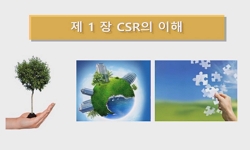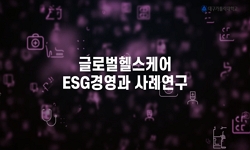Demand for ESG is surging. However, not many are known regarding how consumers perceive firms’ ESG. To fill this gap in the literature, the current research seeks to explore how firms’ ESG is perceived by the young generation as well as to explore...
http://chineseinput.net/에서 pinyin(병음)방식으로 중국어를 변환할 수 있습니다.
변환된 중국어를 복사하여 사용하시면 됩니다.
- 中文 을 입력하시려면 zhongwen을 입력하시고 space를누르시면됩니다.
- 北京 을 입력하시려면 beijing을 입력하시고 space를 누르시면 됩니다.
https://www.riss.kr/link?id=A107985906
- 저자
- 발행기관
- 학술지명
- 권호사항
-
발행연도
2021
-
작성언어
-
-
주제어
ESG ; CSR ; ethical business ; young consumers ; South Korea
-
KDC
320
-
등재정보
KCI등재
-
자료형태
학술저널
- 발행기관 URL
-
수록면
173-178(6쪽)
- 제공처
-
0
상세조회 -
0
다운로드
부가정보
다국어 초록 (Multilingual Abstract)
Demand for ESG is surging. However, not many are known regarding how consumers perceive firms’ ESG. To fill this gap in the literature, the current research seeks to explore how firms’ ESG is perceived by the young generation as well as to explore how the young generation perceive South Korean firms from the ethical perspective. For this purpose, we surveyed ninety-two respondents (35.8% male; Mage=23.5) and they completed the survey. In the survey, respondents indicated their perception regarding South Korean firms’ ethical business management and South Korean firms’ ESG management. Most respondents said ESG would be important (88%) and helpful to achieve competitive advantage (81.5%). However, interestingly, almost of respondents (46.7%) said that ESG would be helpful to maximize productivity. Rather, 92.4% of respondents perceived that ESG would be helpful to enhance firms’ images. In addition, they also perceived that the importance of ESG would become great in the future (85.9%) enough to make a significantly positive impact on firms’ productivity (72.8%). In addition to these findings about ESG, we further investigated how this young generation perceived the ethical business climate among South Korean companies. The results show that only 17.3% of respondents said South Korean business is ethical and 70.6% thought ethical problems would be a problem in the future. While the investigation for South Korean consumers’ perception of ESG and ethical business is not many, our work makes a significant theoretical contribution by providing empirical evidence on this issue. Our results are also managerially meaningful by being a reference to South Korean companies as well as global companies who are interested in the Korean market.
목차 (Table of Contents)
- I. Introduction II. Theoretical Background III. Methodology IV. Conclusion
- I. Introduction II. Theoretical Background III. Methodology IV. Conclusion
동일학술지(권/호) 다른 논문
-
은행고객의 지각된 관계혜택이 만족과 충성도에 미치는 영향 : non-VIP와 VIP의 다중집단분석
- 한국상품학회
- 양현근(Yang, Hyun-Keun)
- 2021
- KCI등재
-
음식 주문·배달 앱 정보탐색의 청장년 집단과 노년집단 간 비교
- 한국상품학회
- 김태선(Kim, Taesun)
- 2021
- KCI등재
-
모바일 결제시스템의 특성이 지각된 가치에 미치는 영향 : 사용자 국적의 조절효과를 중심으로
- 한국상품학회
- 유서설(Liu, Ruixue)
- 2021
- KCI등재
-
코로나 이후 베트남 시장의 상품 전략을 위한 한류의 역할에 관한 제언 : 2017~2021 뉴스 빅데이터 분석을 바탕으로
- 한국상품학회
- 이희정(Lee, Hee-Jung)
- 2021
- KCI등재





 KCI
KCI 스콜라
스콜라






